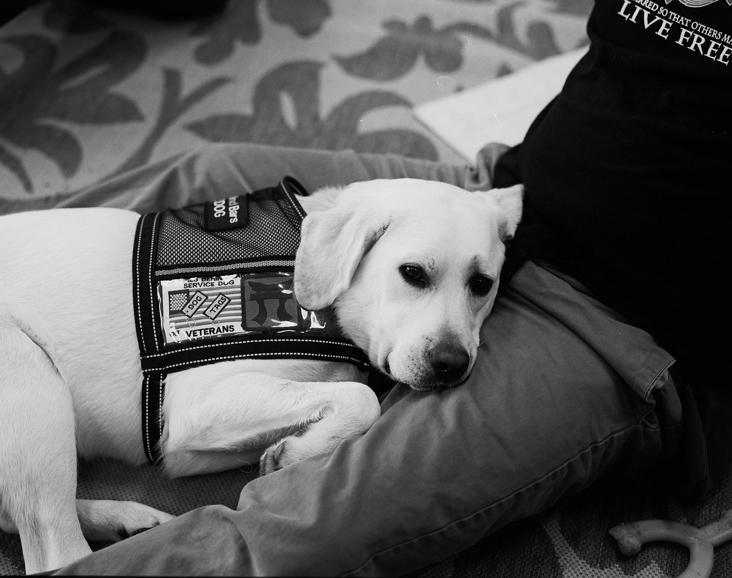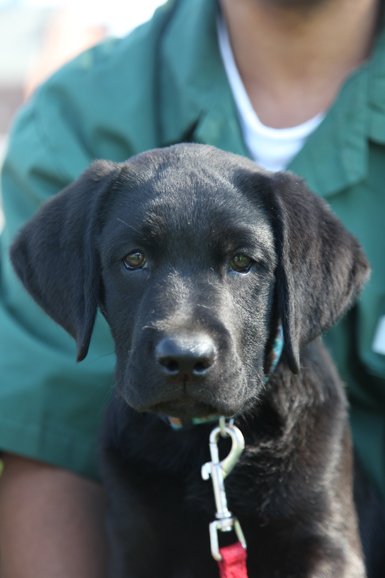If dog lovers are asked to describe the relationship with their furry companions, they’ll often mention “loyalty.” That and “unconditional love.”
These are just two of the fundamental values of Puppies Behind Bars (PBB), a New York-based nonprofit that trains inmates to raise service dogs for war veterans. Founded in 1997 in the Bedford Hills Correctional Facility for Women, the program places Labrador Retriever puppies with inmate trainers for approximately 24 months, during which the pups are raised to care for wounded veterans, including those suffering from traumatic brain injury and post-traumatic stress disorder.
PBB initially specialized in training guide dogs for the blind, transitioning to training explosive device canines after the Sept. 11, 2001 terrorist attacks. When soldiers began returning home from Iraq and Afghanistan in 2006, PBB made a final transition to training service dogs for veterans.
And even though the program is held only in five prisons — four in New York, one in New Jersey — PBB’s efforts have had a nationwide effect.
“Counting a class of six veterans who are being trained with their dogs right now, we will have 87 teams of veteran-service dogs,” says Eric Barsness, director of development for PBB. “They are nationwide, from Washington state to Georgia and everywhere in between.”
To be eligible for the program, inmates must maintain a perfect disciplinary record for one year before asking permission of the prison administration to join. If approved, they are interviewed and, if accepted, they are required to participate in a full day of classes each week. On average, PBB accepts only one out of seven applicants and pairs only 15 to 20 service dogs annually. About 75 percent of dogs graduate and those that don’t are released for adoption.
In the program, puppies are taught 95 commands. Specialty commands include “Got my back,” in which the dog is asked to stand by the veteran’s side while looking behind; and the “clear” command, for which the dog enters a room, turns on the light and does a full turn prior to the veteran’s entry.
“Aside from the commands, the dogs focus on the veteran and the veteran focuses on the dog,” Barsness says. “It’s a very strong calming effect. It makes it much easier for the veterans to go out in public.”
For inmates, PBB offers an opportunity for life after prison.
“They become expert dog trainers and handlers,” Barsness says. “If they have been in the program for 18 months, they receive a certificate from the New York Department of Labor stating they have this skill.”
They also learn loyalty and love.
“Some of them have never experienced the unconditional love given by the dogs in their lives,” Barsness says.
The program concludes with 16 days of team training, which largely takes place in the prisons, enabling inmates to teach veterans how to take full advantage of their dog’s skills.
“That aspect really brings the process full circle,” Barsness says. “The inmates are able to see the effect that dogs have on the veterans’ lives firsthand.”
PBB covers all costs for veterans to train with their dogs, including follow-up visits to the veterans’ homes, recertification for the dogs and assistance with any challenges.
For more, visit puppiesbehindbars.com.






